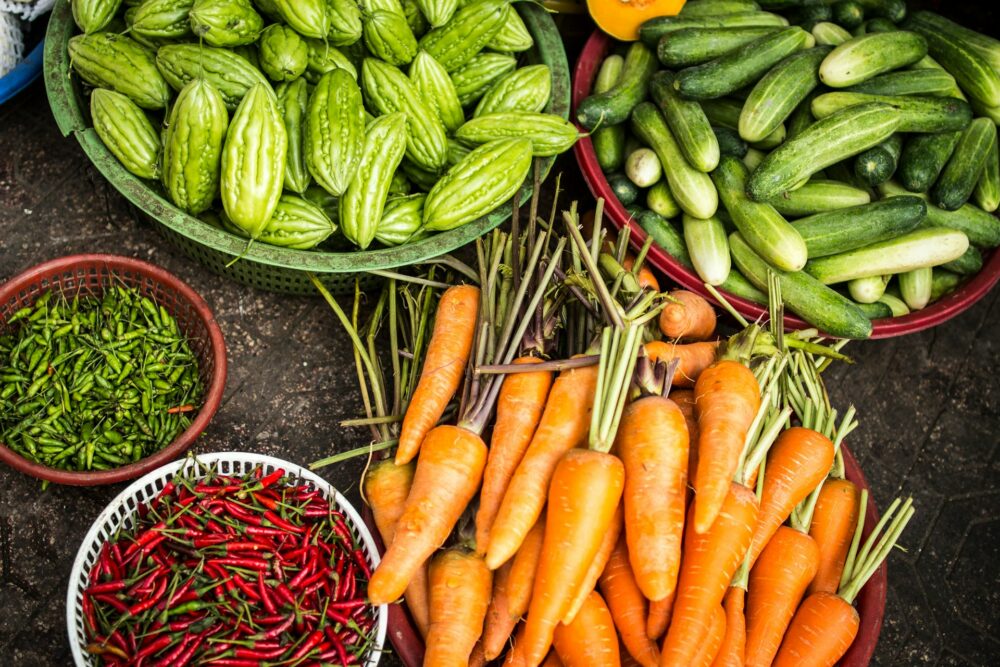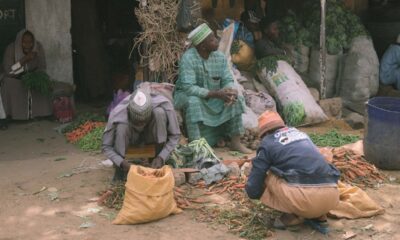Africa
AGRA and Pegasys are Considering Developing a Financing Proposal for RE-GAIN project
On June 6th, 2024, a regional workshop for the RE-GAIN program, aimed at combating food loss in Africa, was held in Bobo-Dioulasso. Organized by AGRA and Pegasys, it assessed climate risks impacting Burkina Faso’s agriculture. The program seeks to enhance small farmers’ climate resilience and reduce post-harvest losses, backed by the Green Climate Fund.

On the morning of Thursday June 6th, 2024, a regional consultation workshop for the RE-GAIN program (Developing solutions to combat food loss in Africa) was held in Bobo-Dioulasso by AGRA. The opening of the work of this workshop was chaired by Basile Ouédraogo, representing the Designated National Authority of the Green Climate Fund in Burkina.
Initiated by AGRA and Pegasys, this meeting, which brings together stakeholders in the agricultural sector, aims to globally assess and prioritize the climate risks that Burkina Faso is facing, by specifically analyzing their impact on the agricultural sector and the food losses that result from it.
The RE-GAIN program aims, according to Abdoulaye Ouédraogo, program manager at AGRA, to strengthen the climate resilience and adaptation capacity of small farmers
He added that the RE-Gain project also promotes solutions to reduce food losses on a large scale in seven African countries, including Burkina Faso. For him, this initiative constitutes a crucial opportunity to fight against post-harvest and food losses in Africa. Something which, he said, mobilizes resources from the Green Climate Fund and implements concrete actions on the ground.
“Post-harvest and food losses are a major scourge that hampers food and nutritional security in many countries. According to the FAO, post-harvest losses in Africa reach 37% of agricultural production,” suggested Abdoulaye Ouédraogo.
He said that in addition to efforts to increase agricultural yields and production, initiatives must be put in place to reduce these losses. According to him, more than 800 million people suffer from hunger in the world.
The program manager at AGRA indicates that climate change as well as the multiplication of hazards have the characteristic of aggravating the low availability of food and negatively impact agricultural yields, complicating the transport, storage and conservation of foodstuffs. This is why, he believes, in its approach to supporting African states towards an inclusive transformation of food systems, AGRA submitted to the Green Climate Fund a concept note for the RE-GAIN program.
Representing the Designated National Authority of the Green Climate Fund, Basile Ouédraogo suggests that Burkina Faso, like some of its African neighbors, faces significant climate challenges that threaten not only food security but also the well-being of people in rural communities. He asserts that post-harvest food losses represent a major obstacle to the sustainability and prosperity of agriculture in Africa in general and in Burkina Faso in particular.
AGRA submitted to the Green Climate Fund a concept note for the RE-GAIN program
“According to the FAO, around a third of agricultural production is lost between the field and the plate, or around 200 billion dollars each year, hence the suffering of millions of people on the continent from hunger and malnutrition,” he declared.
He therefore welcomes that the RE-GAIN program is a groundbreaking initiative aimed at combating food losses in Africa, strengthening the climate resilience of smallholder farmers and helping them adopt sustainable solutions to reduce post-harvest losses. Basile Ouédraogo said he is convinced that the discussions at the AGRA workshop, which is the second of its kind after the one held in Ouagadougou, will help lay the foundations of a solid and effective RE-GAIN program in Burkina Faso.
__
(Featured image by Megan Thomas via Unsplash)
DISCLAIMER: This article was written by a third party contributor and does not reflect the opinion of Born2Invest, its management, staff or its associates. Please review our disclaimer for more information.
This article may include forward-looking statements. These forward-looking statements generally are identified by the words “believe,” “project,” “estimate,” “become,” “plan,” “will,” and similar expressions. These forward-looking statements involve known and unknown risks as well as uncertainties, including those discussed in the following cautionary statements and elsewhere in this article and on this site. Although the Company may believe that its expectations are based on reasonable assumptions, the actual results that the Company may achieve may differ materially from any forward-looking statements, which reflect the opinions of the management of the Company only as of the date hereof. Additionally, please make sure to read these important disclosures.
First published in lefaso.net. A third-party contributor translated and adapted the article from the original. In case of discrepancy, the original will prevail.
Although we made reasonable efforts to provide accurate translations, some parts may be incorrect. Born2Invest assumes no responsibility for errors, omissions or ambiguities in the translations provided on this website. Any person or entity relying on translated content does so at their own risk. Born2Invest is not responsible for losses caused by such reliance on the accuracy or reliability of translated information. If you wish to report an error or inaccuracy in the translation, we encourage you to contact us

-

 Fintech1 week ago
Fintech1 week agoRipple and Mercado Bitcoin Expand RWA Tokenization on XRPL
-

 Crypto10 hours ago
Crypto10 hours agoXRP Hits New All-Time High Amid U.S. Crypto Policy Shift and Ripple’s Expansion
-

 Impact Investing1 week ago
Impact Investing1 week agoItaly’s Electric Cars Market Rebounds, but 2030 Targets Remain Elusive
-

 Cannabis3 days ago
Cannabis3 days agoGermany Moves to Tighten Medical Cannabis Rules Amid Surge in Private Use
























